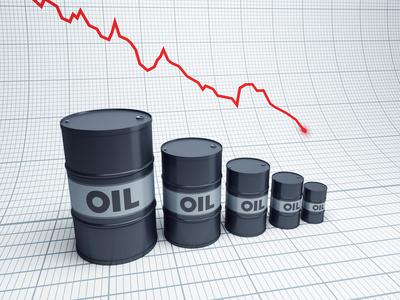OPEC: Is the Power of the Oil Cartel Waning?
 Is the Power of the Oil Cartel Waning?
Is the Power of the Oil Cartel Waning?
Since the 1960’s, the Organization of Petroleum Exporting Countries (OPEC) has cast a powerful shadow over the international oil trade. Finally, it looks like their power is waning. For the last seven years, OPEC managed to keep oil prices high, at least 100 dollars (USD) per barrel. Today, falling oil prices threaten the very existence of the cartel.
The same high prices that kept citizens of OPEC countries happy, has slowly dried up demand for such costly oil, and inspired North American companies to explore new techniques, particularly the investment in oil sands extraction and fracking. As these non-OPEC sources for fossil fuels have gained ground, their market share has grown and prices have finally started to drop. Now, with barrels of oil sitting at a mere 70 dollars (USD) per barrel, the once-powerful OPEC is struggling to maintain control of their supply.
Crumbling Prices
Presently, OPEC countries are struggling to find a direction forward. Saudi Arabia, currently the world’s largest oil producer, and a leading member of OPEC, wants to see decreased oil prices to maintain OPEC’s large market share. Poorer countries, like Iran and Venezuela, would rather see higher prices.
At the end of November, OPEC announced that they would not cut oil production from their current 30 million barrels a day, a move which some analysts believe could see oil prices tumble to as low as 60 dollars (USD) per barrel. In fact, immediately following the news, Brent crude hit a four-year-low price, and West Texas Intermediate dipped below 70 dollars (USD) a barrel.
Disagreement Between OPEC Members
These are exactly the results Saudi Arabian leaders were looking for, with hopes that non-OPEC production will be significantly arrested, so that prices can recover naturally, while OPEC retains its current market share.
However, OPEC’s mission statement is to protect the interests of members both individually and collectively, and by willfully promoting market price drops, Saudi Arabian and Gulf leadership are driving a stake between themselves and other member nations, who will undoubtedly feel the pain of the dropping prices. Those states could very likely ignore OPEC’s stated production limits in order to protect their own budgets.
The End of An Era
It is a widely held belief that OPEC is losing its power over the market. Indeed, researchers have been looking into this very question. In 2013, Jeff Colgan published a paper that found very minimal OPEC influence on oil production. Now that’s a strong claim, but Colgan is careful to specify that while OPEC’s power is limited at best, powerful member countries, like Saudi Arabia, do have power over the international markets. So we might be seeing an end to the cartel’s power, but not the end of Middle Eastern power.
Other observers, like the Telegraph’s Jeremy Warren, see OPEC’s already shrunken market share (once a high of 50%, the cartel controls just 30% of the oil market today) as a sign of its weakness, and softening prices as the sign of its imminent demise. Infighting on oil prices may further point to a lack of control.
Many observers hypothesize that this is the end of OPEC’s control of the market through supply. Regardless, the next few years will see a dynamic shift in the oil industry as many countries vie for having the upper hand in controlling oil prices.

